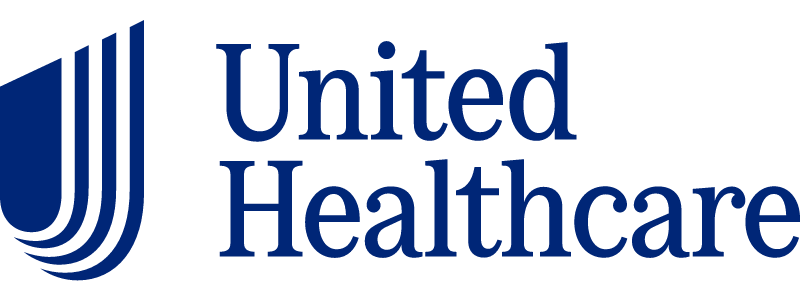While teens and adults can both develop an addiction to alcohol and other drugs, teens are uniquely susceptible as their brains are underdeveloped. The human brain is not considered fully developed until an individual reaches their mid-twenties. More specifically, the frontal lobe is a brain area that, when fully developed, is responsible for the ability to make positive decisions and appropriate judgments. As this brain area and many others are not appropriately matured, teens are more likely to give in to peer pressure or neglect to see the long-term consequences of engaging in risky behavior.
Peer pressure, curiosity, experimentation, there are many ways a Teen is being called to consume/use something they shouldn’t. This kind of context gives teens an environment of constant pressure to “feel good” and that prepares the way of trying things harmful to the teens development,
Let’s explore other various causes of teens’ susceptibility to substance use and addiction.
Why Are Teens More Likely to Use Drugs Than Adults?
The brain plays an active role in developing addiction, independent of the type of drug being used. With time, drugs and alcohol can change the brain’s chemistry. Since teen brains are still forming, frequent and repeated substance use can reduce brain functioning and impact cognitive abilities. This increases the likelihood that teens will act on impulse or emotion rather than rational decision-making.
How Do Drugs Change Teenagers’ Brains?
Adults and teens alike can experience changes in brain chemistry from drug abuse. However, teenage brains are affected differently as the effects of substance use alter the brain much more quickly as their brains are still developing. During the teen years, the brain develops by fostering self-control, decision-making skills, and overall maturity. Drug use essentially stunts this growth. When that happens, teens are more likely to engage in risky, impulsive behaviors that provide immediate gratification. They lose the ability to predict the consequences of these actions, or how the decisions made in the present will affect a future that is years down the road.
Drug use trains the brain to expect immediate gratification. Eventually, the brain develops a tolerance that will require heavier use to experience the same perceived reward. The compulsive nature of addiction is what enables teens to seek out substance use repeatedly once they are exposed to the effects of alcohol and other drugs.
Why Is It Harder for Teens to Resist Drug Use?
There are many reasons that teens may be initially drawn to drug use and find it difficult to resist over time. For some teens, there may be peer pressure to fit in with certain groups of friends. Others may be depressed and use substances to self-medicate their distress. Some may be born into families with addicted parents or other relatives, which increases their risk of substance use and addiction. Whatever the initial reasons, the undeveloped frontal lobe makes it easy to take unnecessary risks. The earlier an addiction begins, the harder it is to control it later in life.
Understanding the reasons behind teen drug use can help parents better protect their kids. When someone in the family is addicted to drugs, it affects everyone. Early intervention and treatment are critical to breaking the cycle of addiction and providing healing for everyone who is intimately connected to the teen’s family unit.
How Can Parents Prevent Teen Drug Abuse?
Many teens are told to “just say no” when asked to use drugs in their social circles. But studies have shown that this isn’t enough. In some cases, telling a teenager “no” can just increase the curiosity about a seemingly forbidden activity. It’s best to have an ongoing conversation with your teen about drugs. Be honest about the initial high and perceived feelings of reward that drugs create, but also be realistic about the damage that chasing those feelings inevitably causes. The goal is not to scare your teen into good behavior but to be real and honest about what drug abuse looks like.
You may want to consider setting expectations with your teen for when they find themselves in potentially harmful situations. This may include permitting them to call you at any time to pick them up if they find themselves in an environment where people are using drugs or alcohol. The main goal of this situation would be to get out of harm’s way as quickly and efficiently as possible, without fear of punishment. At the right time, you may want to discuss what happened and let your teen know how proud you are of your teen for reaching out for help instead of making a dangerous choice. This will help your teen feel comfortable coming to you for help in the future.
How Can Parents Help Their Teen Overcome Drug Addiction?
Parents can help prevent teen drug abuse by implementing the communication strategies described above. Understanding the teenage brain is also helpful in understanding how addiction initially develops. Enforcing certain consequences — such as taking away their cell phone or not allowing them to hang out with certain friends — is a good start; however, it is not enough to stop an addiction. Fortunately, there are programs designed specifically for teens struggling with drug use that can help.
It can be scary to become aware that your child is using alcohol or other drugs or developing an addiction. Parents often think that good parenting will protect against substance use and addiction. However, plenty of research shows that teens that struggle with drug abuse are not “bad kids.” Often, they come from stable families with good values and healthy circumstances. While it is true that some teens in less-than-ideal environments may be more susceptible to drug use, the reality is that it can happen to anyone. If you suspect your teen has a drug problem, don’t wait to seek help. Clearfork Academy has a long track record of successfully helping teens fight addiction and live sober. With our residential treatment programs, detox programs, therapies, and other treatment options, we’ve created a healthy, safe environment for teens of all backgrounds to get clean. Call (817) 259-2597 to learn more.
Austin Davis, LPC-S
Founder & CEO
Originally from the Saginaw, Eagle Mountain area, Austin Davis earned a Bachelor of Science in Pastoral Ministry from Lee University in Cleveland, TN and a Master of Arts in Counseling from The Church of God Theological Seminary. He then went on to become a Licensed Professional Counselor-Supervisor in the State of Texas. Austin’s professional history includes both local church ministry and clinical counseling. At a young age, he began serving youth at the local church in various capacities which led to clinical training and education. Austin gained a vast knowledge of mental health disorders while working in state and public mental health hospitals. This is where he was exposed to almost every type of diagnosis and carries this experience into the daily treatment.
Austin’s longtime passion is Clearfork Academy, a christ-centered residential facility focused on mental health and substance abuse. He finds joy and fulfillment working with “difficult” clients that challenge his heart and clinical skill set. It is his hope and desire that each resident that passes through Clearfork Academy will be one step closer to their created design. Austin’s greatest pleasures in life are being a husband to his wife, and a father to his growing children. He serves at his local church by playing guitar, speaking and helping with tech arts. Austin also enjoys being physically active, reading, woodworking, and music.




